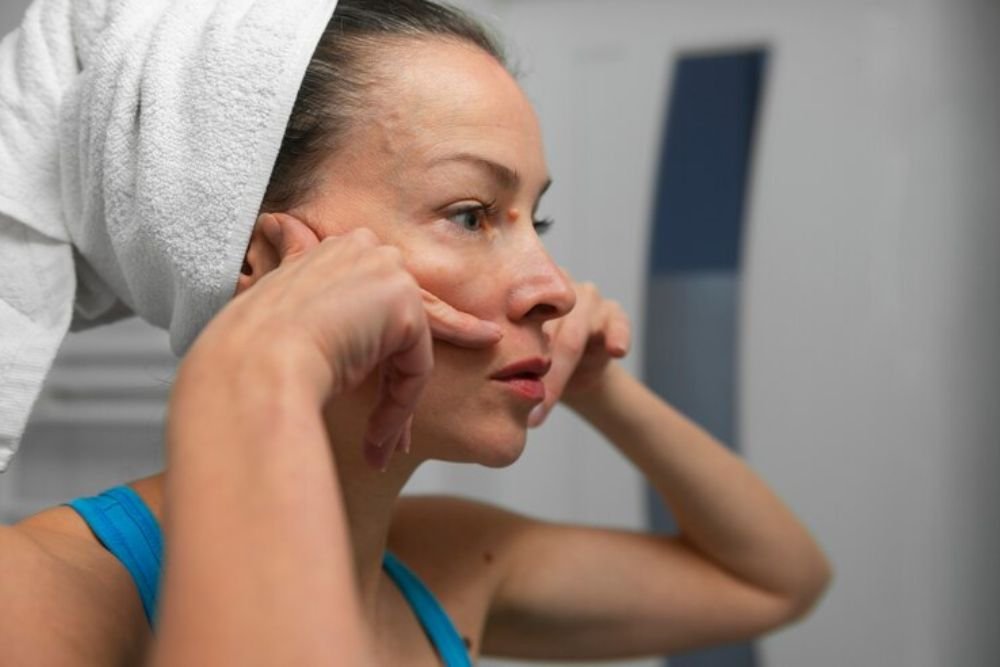Learn about ringworm on skin: symptoms, treatment, and prevention. Discover effective remedies and professional care tips to manage this common fungal infection.
Ringworm is a common fungal infection that affects the skin, causing various symptoms such as hair loss and scaly skin. While it’s more prevalent in certain animals like cows and donkeys, humans can also fall victim to this bothersome condition.
Understanding the nuances of ringworm on skin is essential for effective treatment and prevention.
Table of Contents
What is Ringworm?
Ringworm, despite its name, is not caused by a worm but rather by a group of fungi known as dermatophytes. These fungi thrive in warm, moist environments and can infect the skin, scalp, and nails.
The characteristic circular patches of ringworm often cause itching, redness, and discomfort.
Ringworm on skin typically appears as circular patches of affected skin, accompanied by hair loss and scaly texture. These patches can vary in size and may appear on different parts of the body, including the head, neck, arms, and legs.
The infection is highly contagious and can spread through direct contact with an infected person or animal, as well as contaminated surfaces such as towels or clothing.
Experience the Future of Skincare: Nanotechnology for Unmatched Results! Ready to experience the future? Click now!
Treatment Options

When it comes to treating ringworm on skin, there are several options available, ranging from topical creams to oral medications. Clotrimazole cream and Azadirachta indica have shown effectiveness in treating ringworm in animals like donkeys.
For humans, Griseofulvin, an oral antifungal medication, is commonly prescribed to combat the infection.
- Topical antifungal creams or ointments
- Oral medications such as Griseofulvin
- Home remedies like Vernonia amygdalina (bitter leaf)
While over-the-counter antifungal creams can be effective for mild cases of ringworm, more severe infections may require prescription-strength medication.
It’s essential to follow the prescribed treatment regimen diligently and continue treatment until the infection has completely cleared.
Prevention Measures
Preventing ringworm infection involves practicing good hygiene and avoiding contact with infected individuals or animals. Here are some preventive measures you can take to reduce your risk of contracting ringworm:
- Maintain good hygiene: Regularly wash your hands and body, especially after coming into contact with animals or contaminated surfaces.
- Avoid sharing personal items: Refrain from sharing items like towels, clothing, combs, or brushes with others, especially if they may be infected.
- Keep skin clean and dry: Moisture provides an ideal environment for fungal growth, so it’s essential to keep the skin clean and dry, especially in areas prone to sweating.
Home Remedies
While conventional treatments are effective, some people may prefer to explore natural remedies for treating ringworm. Vernonia amygdalina, also known as bitter leaf, has shown promise as a natural antifungal agent.
The extracts of this plant have been found to inhibit the growth of dermatophytes, the fungi responsible for ringworm infection.
In addition to bitter leaf, other natural remedies such as tea tree oil, garlic, and coconut oil may also possess antifungal properties and can be used to alleviate symptoms of ringworm.
However, it’s essential to consult with a healthcare professional before trying any home remedies, especially if you have underlying health conditions or are taking medications.
Upgrade Your Skincare Arsenal: Nanotechnology for Ultimate Skin and Nail Care! Ready to upgrade? Click here for ultimate care!
Professional Care
If you suspect you have ringworm or are experiencing symptoms such as persistent itching or skin irritation, it’s crucial to seek professional medical attention.
A dermatologist or healthcare professional can provide a proper diagnosis and recommend the most effective treatment plan based on the severity of your condition.
During your appointment, be prepared to discuss your symptoms, medical history, and any previous treatments you’ve tried.
Your healthcare provider may perform a physical examination of the affected area and may also order laboratory tests to confirm the diagnosis of ringworm.
Conclusion about Ringworm on Skin
Ringworm on skin can be a bothersome and uncomfortable condition, but with proper treatment and preventive measures, it can be effectively managed.
By understanding the symptoms, treatment options, and prevention strategies outlined in this article, you can take control of your skin health and reduce your risk of ringworm infection.
Remember to practice good hygiene, avoid sharing personal items, and seek professional medical attention if you suspect you have ringworm.
With the right approach, you can enjoy healthy, clear skin and peace of mind year-round.

